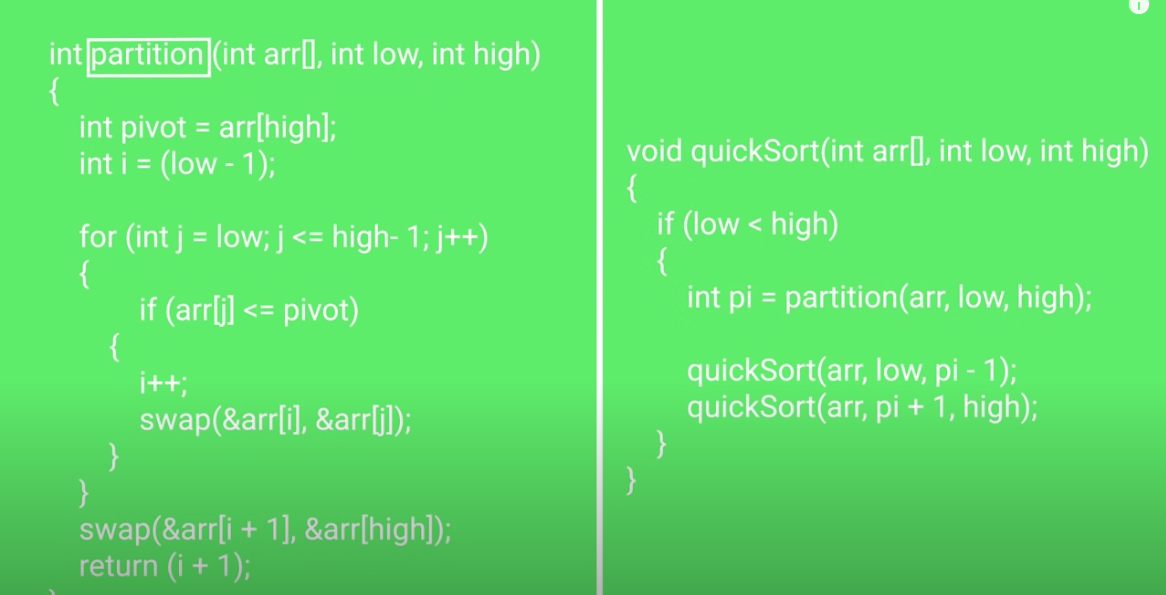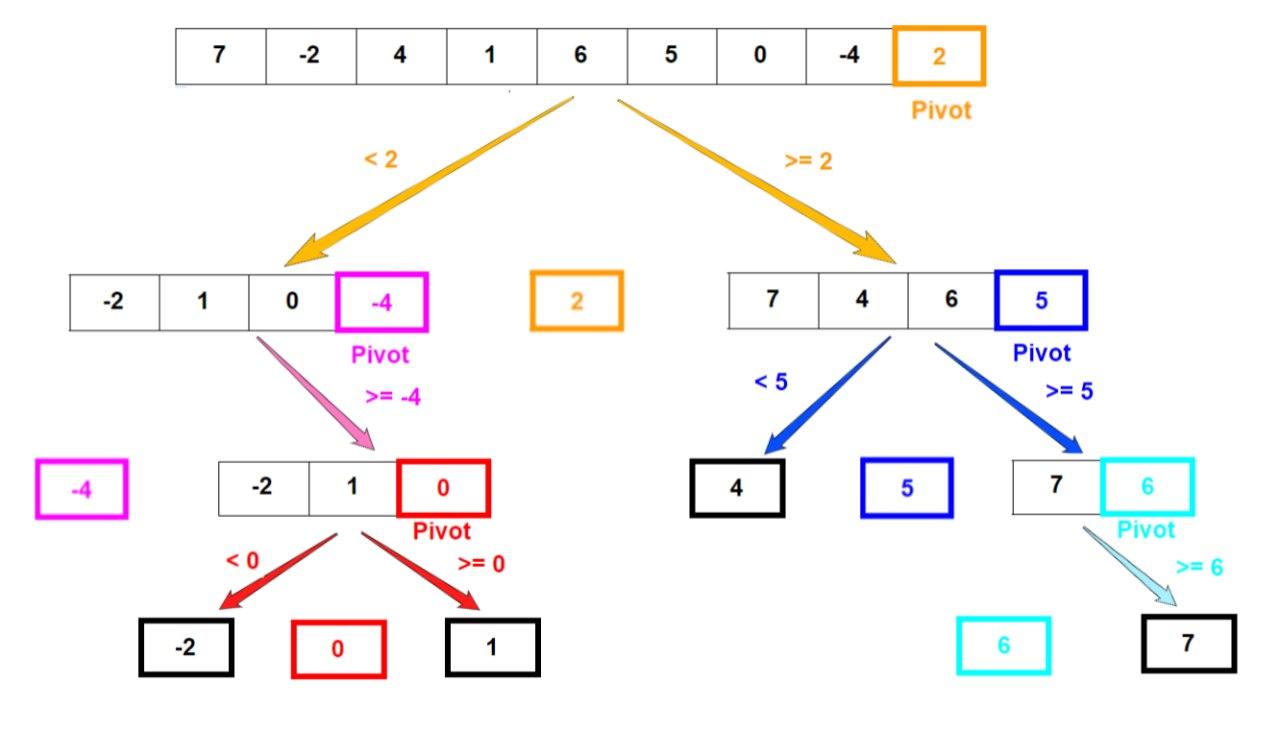Thinking:
when we don’t have special knowledge about certain set of unsorted data the best we can do is O(n*log(n)), like using quick or merge sort, the fastest sorting algorithms. In a recursion we are going to be able to split the inputs for merge sort up to log(n) levels of work.
const QuickSort = (arr, startIndex, endIndex) => {
if (startIndex < endIndex) {
let pivotIndex = Partition(arr, startIndex, endIndex)
QuickSort(arr, startIndex, pivotIndex - 1)
QuickSort(arr, pivotIndex + 1, endIndex)
}
}
const Partition = (arr, startIndex, endIndex) => {
let pivotValue = arr[endIndex]
let i = startIndex
for (let j = startIndex; j < endIndex; j++) {
if (arr[j] < pivotValue) {
Swap(arr,i , j)
i++
}
}
Swap(arr,i, endIndex)
return i
}
const Swap = (arr, index1, index2) => {
let temp =arr[index1]
arr[index1] =arr[index2]
arr[index2] = temp
}
let QuickSort = (arr, low, high) => {
if (low < high) {
let p = Partition(arr, low, high);
QuickSort(arr, low, p - 1);
QuickSort(arr, p + 1, high);
}
return arr;
}

